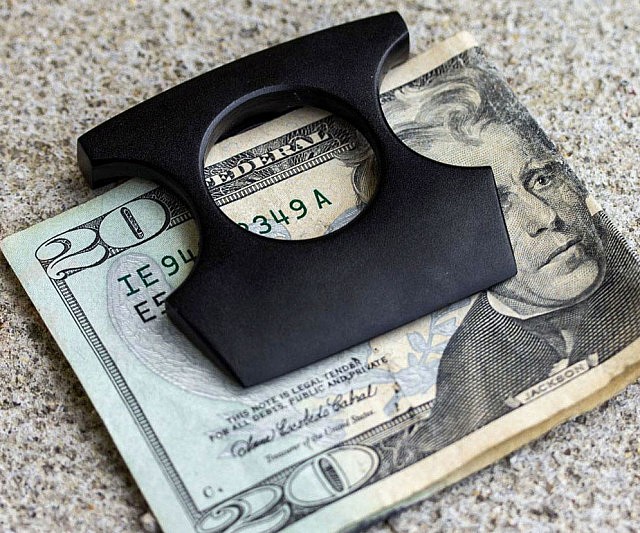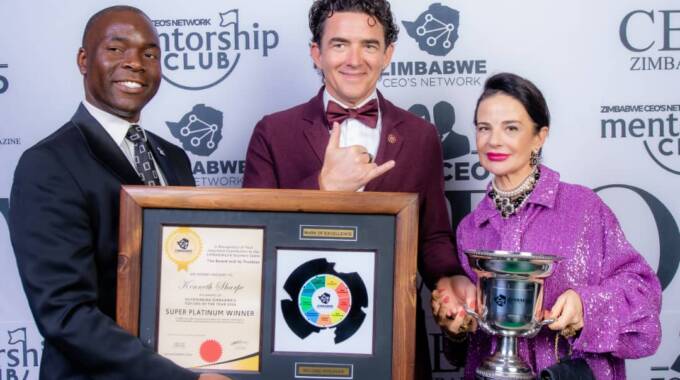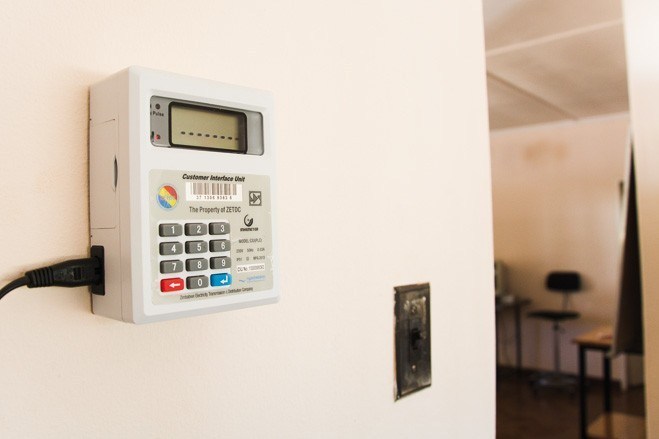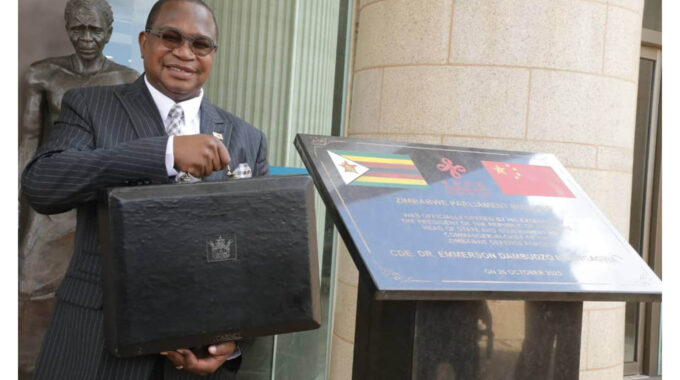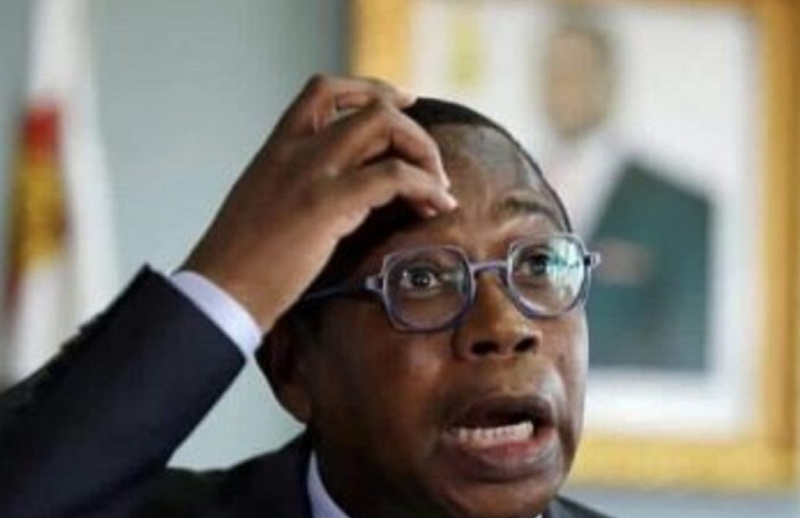Horticulture farmer eyes foreign markets
A GWERU-based farmer, Mrs Matilda Manhambo, who has carved a niche for herself in the field of horticulture is basking in the glory of her successful farming story and is now targeting lucrative United Arab Emirates and European markets.
Mrs Manhambo is a retired civil servant who served in Government for 36 years. A holder of a diploma in accounting, she joined the public service as a clerk in the department of research and specialist under the Ministry of Agriculture.
Gweru horticulture farmer, Mrs Matilda Manhambo and Mr Clarence Mwale a consultant
She rose through the ranks to become a senior executive officer.
Mrs Manhambo believes that farming is a business that can help create wealth and employment opportunities for the country. She is riding on the wave of the economic diplomacy stance driven by the Second Republic.
The economic diplomacy agenda being spearheaded by President Mnangagwa’s administration is bearing fruit as the country continues to record positive growth in exports, which shows that the world is warming up to Zimbabwean products.
Guided by the mantra “Zimbabwe is open for business”, the Government is working closely with the private sector to revamp key productive sectors, as part of the broader economic transformation agenda, which is anchored on the rolling out of reforms aimed at enhancing the ease of doing business and stimulating both domestic and foreign direct investment.
Creating export-led growth and substituting imports are at the heart of this drive, which should culminate in the attainment of an upper middle-income economy by 2030.
Since the advent of the Second Republic, the Government has been on an economic diplomacy path as part of re-engagement efforts with Western countries.
Despite the country boasting vast investment opportunities in different sectors of the economy, it has over the years suffered from negative perceptions linked to the continued imposition of illegal Western sanctions.
This resulted in European source markets narrowing, reducing foreign currency earnings for the country.
However, in line with the Second Republic’s Engagement and Re-Engagement policy, the adoption of an economic diplomacy stance, which seeks to harness positive international relations to steer national economic growth, is beginning to pay dividends.
Previously closed markets are now opening up to the private sector. Mrs Manhambo, who has a vast farming enterprise at her 196 hectare Kufumaishungu Farm, is aggressively targeting Dubai, the Netherlands, the United Kingdom and German markets.
Kufumaishungu Farm specialises in horticulture, livestock, poultry, piggery, goats and sheep. The enterprise operates two butcheries that serve as ports for the farm’s primary selling outlets.
Mrs Manhambo ventured into farming in 2006 after being allocated land by the Government as part of the land redistribution programme.
Mrs Manhambo inspecting her main crop
She projects to export 590 000 stems of bupleurum flowers from 1,5 hectares to the Netherlands, United Kingdom and Germany as part of efforts to boost the country’s export earnings.
Bupleurum is an important herb used in traditional Chinese and Japanese medicine. It is frequently prescribed in combination with other herbs to treat colds, fever, digestive disorders, chronic liver diseases and depression symptoms.
Mrs Manhambo also plans to export granadillas to the Dubai market. Her plans come in the backdrop of 18 tonnes of peas exported to the Netherlands last year.
She started growing flowers last year in March.
“Last year, I cultivated half a hectare and it was for the purpose of an audit for Global Gap. This year we are doing 1,5 hectares as the market requires 590 000 bupleurum flower stems from us,” said Mrs Manhambo.
“It is for export to the Netherlands, Germany and the United Kingdom.”
Mrs Manhambo said by mid-February, she would put 10 hectares under granadillas targeting the Dubai market.
“Funds permitting, by mid-February we are going to start planting peas, which is a winter crop. I also have a project on my plan to do granadillas for the export market targeting Dubai,” she said.
Horticulture contributes 6,5 percent to total agricultural output and 0,7 percent of Zimbabwe’s total gross domestic product (GDP).
The Government last year introduced a US$30 million horticulture export revolving fund to spur horticulture exports growth, as well as fulfil the dictates of the Horticulture Recovery and Growth Plan (HRGP).
This is in addition to other incentives such as suspension of duty on agriculture capital equipment (S.I. 6 of 2016), anchor farmer incentive, value added tax (VAT) zero rating of farm inputs and foreign currency account (FCA) retention on incremental export receipts of 100 percent.
The Horticulture Recovery and Growth Plan being operationalised aims to boost the output of key commodities such as blueberries, fresh produce, citrus, macadamia, coffee and high-value emerging crops such as industrial hemp and medicinal cannabis.
ZimStats figures on external trade for the period January to November 2022 show that the country exported horticulture produce worth US$70 909 597 last year against US$70 611 813 for the same period in 2021.
In the formulation of the National Development Strategy 1 (NDS 1), the Government committed to, not only grow the agriculture sector as a major driver of economic growth, but to increase the value of agricultural production through value addition and beneficiation.
ZimTrade
Mrs Manhambo is getting assistance from the country’s trade promotion body, ZimTrade, which has seen her acquire key certification, which is necessary for one to venture into the competitive export market.
She has attended several training programmes under ZimTrade, notably the “Next She Exporter”.
The “Next She Exporter” programme caters for women entrepreneurs in various sectors of the economy with the exception of mining, fuels and electricity.
It is the first of its kind in Zimbabwe and is expected to grow female entrepreneurs and contribute to Zimbabwe’s competitiveness on both regional and global markets.
“Presently, I am being trained by ZimTrade who are also linking me to international markets. They have also paid fees for my Sedex Members Ethical Trade Audit (SMETA) which will be done on the 30th of January this year,” said Mrs Manhambo.
However, she said accessing key inputs and finance is a major challenge.
Reserve Bank of Zimbabwe (RBZ)
“On inputs, it is a struggle as funds are scarce. We need seed, fertilizers, chemicals, packaging and labour. I am aware of the US$30 million horticulture export revolving fund, but the banks which are supposed to have that facility are not forthcoming,” said Mrs Manhambo.
Banks assigned by the Reserve Bank of Zimbabwe (RBZ) to administer the US$30 million Horticulture Export Revolving Fund last year released the requirements that farmers must meet to access the fund and the repayment modalities to sustain it.
Farmers are supposed to be growers of an export-oriented horticulture crop, with established export markets and/or export contracts and farming track record.
The banks will then use the project proposal and cash flows to evaluate potential funding for a farmer.
Some of the banks administering the fund include AFC Holdings, CABS, First Banking Corporation (FBC) and NMB-chronicle.cl.zw



